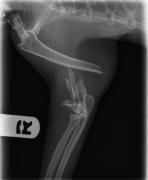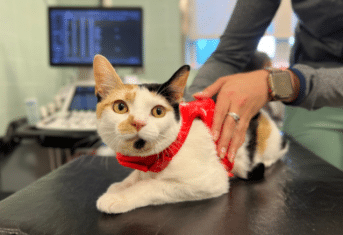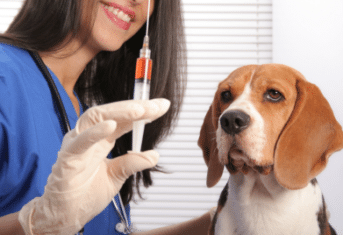High Rise Syndrome in Cats

High Rise Syndrome in Cats
Warmer weather ushers in “high rise” season: the time of year when The Animal Medical Center’s ER sees an uptick in the number of cats injured as a result of an accidental fall from their apartment windows. Dogs also fall from apartment windows or terraces, but not as often as cats.
Not Just in New York
In the early 1980s, The AMC was the first to report on what was dubbed “high rise syndrome” in cats. Over a five month period, we treated 132 cats that had fallen out of a building and 90% of these cats survived. High rise syndrome is not unique to New York City. Recently, a study of Croatian cats found most cats who fell were less than a year old and those who fell more than five stories had more serious injuries. In a study of Viennese cats published last year, inflammation of the pancreas was a common sequel to the trauma of falling from a building.
Triad of Injuries
High rise cats seen at The AMC suffer from a common triad of injuries: chest trauma, head/facial injuries and limb fractures. Prince Michael, Sox and Tyra are three recent AMC high rise patients who have this classic set of high rise injuries.
Prince Michael was only 12 weeks old when he fell four stories from his West Side apartment window. He must have landed on his chin and chest. He fractured one of his upper fangs, abraded his chin and suffered lung bruises. The fracture of the tooth opened the pulp cavity, or central blood vessel supplying the tooth, and to prevent an infection from moving up through the open pulp cavity, the tooth was extracted a couple of weeks after his fall.
Sox, a four year old cat, fell five stories onto his head and was badly scraped up. The force of the fall caused a tear in his lungs, allowing air to leak out and into the space between his lungs and ribs. The accumulation of air prevented his lungs from expanding and he was experiencing respiratory distress when he arrived at The AMC. Our ER doctors removed the excess air, restoring his ability to breathe. The fall also fractured the roof of his mouth and a back leg. Once the lungs were healed, AMC surgeons repaired the roof of his mouth and splinted the leg.
Current Record Holder
So far in the 2014 high rise season, the highest fall seen at The AMC has been 17 stories. Tyra, a six month old kitten, suffered a fractured hip socket and lung bruising. Fortunately, Tyra’s orthopedist recommended cage rest and not corrective surgery. Most people wouldn’t think lungs could get bruised, but the impact from a fall can bruise the lungs, the same way you can bruise your elbow if you fall off your bike. When lungs become bruised, they cannot exchange oxygen well and Tyra required oxygen cage therapy until the lung bruises resolved. Happily, Tyra was discharged three days after her fall.
High Rise Syndrome is Preventable
Although all three of these cats were fortunate enough to eventually go home, not all high rise cats survive. Take these steps to keep your cat safe:
- Keep window screens tightly in place
- Close windows if you don’t have screens
- Prevent falls by keeping your pet off open terraces and balconies

































